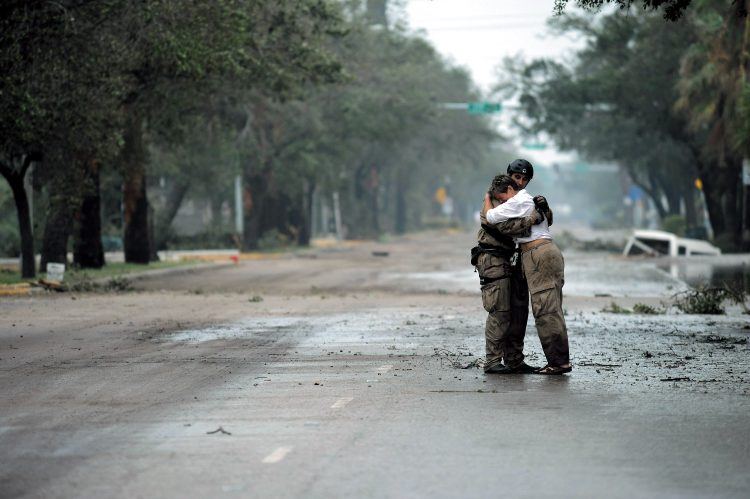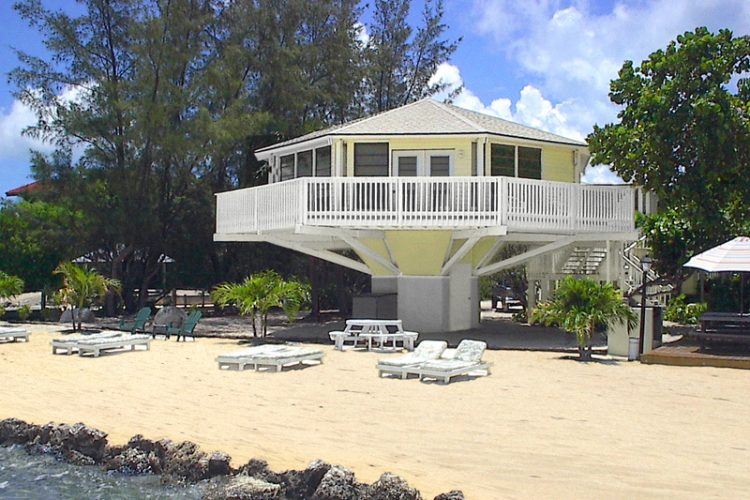
Both Colorado State University and the Weather Network are predicting that the 2016 hurricane season will be the most active hurricane season since 2012. (1) The first expects 14 named storms, eight hurricanes, and two major hurricanes, while the second expects 12 named storms, six hurricanes, and three major hurricanes. Although the number of hurricanes in a hurricane season have no connection with whether said hurricanes will hit the United States, each one is an additional chance for something like that to happen, meaning that U.S. residents living on the Atlantic coast should make sure to hurricane-proof their homes as soon as possible.
Why Should You Hurricane-Proof Your Home?
There are a number of reasons that you should hurricane-proof your home. First and foremost, a hurricane-proof home maximizes the chances of you and your family staying safe and sound throughout the hurricane season, which is important because hurricanes can cause flooding, hurl loose objects at lethal speeds, and in some cases, flatten buildings. Second, a hurricane-proof home sustains less damage from hurricanes, which is not just important for reducing the cost of repairs and replacements after each hurricane season but also for minimizing the inconvenience for you and your family while you want for those repairs and replacements to be carried out.
Finally, it should be noted that the hurricane season is something that happens on an annual basis, thus making hurricane-proofing your home the financially-sensible option because hurricanes are not rare and unusual occurrences but something that you might experience year after year. Summed up, you should hurricane-proof your home not just because it leads to better outcomes but also because it costs less in the long run, meaning that there is no reason for you to choose otherwise if you are a U.S. resident living on the Atlantic coast unless you are planning to move out as soon as possible.

How Can You Hurricane-Proof Your Home?
Here are some suggestions from Houzz that you can use to hurricane-proof your home:
1. You need to pay particular attention to your doors and windows because they are some of the most susceptible parts of your home. For example, something as simple as a set of shutters on your windows can keep their glass from shattering when struck by loose objects, which in turn, will keep the glass shards from slicing up the interior of your home. If you are not comfortable with having shutters on your windows because you think that they will clash with the rest of the exterior of your home, you can install tracks instead, which can be used to fasten a set of shutters during hurricane season but remove them during the rest of the year. Similarly, you are going to want to make sure that your doors can withstand hurricane winds because you are not going to enjoy the results if one of your doors give way and let the winds wreak havoc with your interior.
2. The fewer the loose objects that can be found on your premises, the fewer the loose objects that will be flung around when a hurricane passes through. As a result, one of the simplest but most important steps in hurricane-proofing is making sure that all of your outdoor furniture and other outdoor items are taken inside before the hurricane can come. Furthermore, you should make sure that your trees have been well-trimmed before the hurricane season can arrive because hurricane winds are more than capable of ripping loose dead and damaged branches before hurling them around at incredible speeds.
3. Your home must be built using fasteners, which will ensure that its separate components will stay on the ground once the hurricane winds start up. This is important because hurricane winds can cause a great deal of uplift, meaning that they can actually tear the roof right off of your home, which will not just cause horrific damage to your roof but also make a mess of your interior. After all, homes are notorious for developing all sorts of problems after their interiors have been exposed too long to too much moisture, with common examples ranging from rot to mold. By making sure to use the fasteners recommended for your particular style of home, you can not just keep your home together but also reduce the number of loose objects that will be flung around by the hurricane winds.

4. On a related note, you want to make sure that your drainage system is running properly because hurricanes mean a great deal of precipitation, so much so that bad drainage can cause the water to back up into your home, which will result in serious damage from over-exposure to moisture even if it comes out fine from the hurricane winds. At a minimum, you should conduct a visual inspection of your drainage system to make sure that there are no obstructions. If there is, you should get it cleaned out as soon as possible.
5. Finally, you want to make sure that your home has at least three days’ worth of supplies, which include but are not limited to food, potable water, medicine, and batteries for the devices that you need to keep in touch with the rest of the world. Furthermore, you want to make sure that your home has an emergency kit as well since you never know what will happen, meaning that having a first aid kit as well as other emergency kit staples can end up saving the lives of you and your family.
Further Considerations
There are more steps that can be taken to improve your home’s chances of coming out of hurricane season with minimal damage to either its interior or its exterior. Fortunately, these steps are well-documented, meaning that you should have no problems finding out more information on your own so long as you are willing to put some time and effort into searching. However, if you need assistance, you should not hesitate to contact local home renovators who specialize in hurricane-proofing homes in your region, which should provide you with not just the best advice about what to do but also vital assistance with actually doing it.
References:


Comments
Loading…